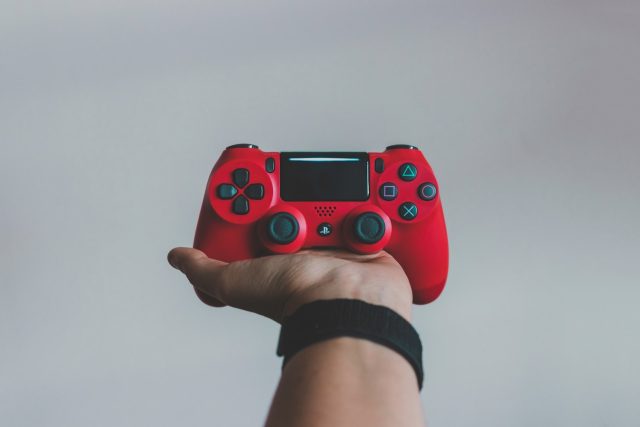In today’s world, mental health is a major concern for many. Mental illnesses such as depression, anxiety, and PTSD can affect anyone regardless of age and gender. While seeking professional help is one way to manage these issues, other options are also available. One effective solution is playing fun games, which can greatly reduce stress, improve moods, and increase overall well-being. Such games provide an opportunity to relax, have fun and enjoy the company of others.
Fun Games & Mental Health
Playing fun games can be an effective way to improve mental health. Not only can engaging in gaming activities provide a much-needed distraction from day-to-day stressors, but these activities also have the potential to develop cognitive and social skills. The benefits of playing fun games are becoming increasingly recognized, with many experts recommending that individuals engage in regular gaming as part of their mental health routine. Fun games come in many forms, such as board and card games, video games, and physical sports or activities. Whether it is solo play or within a group setting, engaging in some games allows players to take their minds off worries while simultaneously challenging them on problem-solving skills and strategy development. Furthermore, participating in these types of activities brings people together socially, which may help reduce feelings of loneliness or isolation.
Mood Boosters
Taking a break to play fun games can greatly boost your mood and relieve stress. They are entertaining and can also help improve problem-solving skills, cognitive flexibility, and executive functions like concentration and memory. Choosing a game that is engaging enough can even act as an escape from reality while providing the opportunity to practice new strategies or tactics.
By playing online or mobile games with friends, you can connect in a different way than before – without having to meet up in person. This can help reduce feelings of loneliness or isolation during this time when making face-to-face connections may not be possible. And suppose you have difficulty taking breaks from work or studying for school. In that case, fun games provide healthy distractions that allow your mind the time it needs to rest and recharge without worrying about the pressure of productivity.
Games are also beneficial for developing creative thinking skills. Whether it’s figuring out how best to use resources available or testing out different approaches in order to find successful solutions, these activities promote outside-of-the-box thinking and allow ideas to flow more freely than when stuck on a task within strict parameters like an exam question or work project.
Stress Management
Playing fun games can be a great way to relieve stress and improve your mental health. Games provide an outlet for the physical and emotional stress we feel while also allowing us to bond with others. Not only do they help us relax, but they can also help us learn how to manage our emotions in challenging situations. Studies show that playing video games or board games can reduce anxiety and improve moods by helping people practice problem-solving skills and cope with difficult feelings. Additionally, engaging in creative activities like playing music or creating art distracts from stressful thoughts or worries. Fun activities give us time away from everyday life so we can come back feeling refreshed and energized. Furthermore, participating in leisure activities helps build strong social connections, which is vital for maintaining good mental health over the long term.
Improved Concentration
Playing games can be a great way to increase your concentration. Games like puzzles, memory games, and strategy board games involve problem-solving and improving cognitive skills like attention and focus. Engaging in activities that require you to focus on a task or goal increases your ability to concentrate on any task throughout the day. Regularly engaging in fun gaming activities encourages improved mental agility and increased capacity for concentration, which can translate into greater productivity during your daily tasks.
Games also positively reduce stress and anxiety levels since they give us something to focus our energy on instead of worrying about other things going on in our lives. Playing games helps us relax and gives us an outlet for negative thoughts while we are still working toward completing something enjoyable. Additionally, playing with others can provide social interaction, which is essential for mental health and an opportunity for learning from each other’s different strategies when playing the game.
Overall, playing fun games provides not only enjoyment but also has many positive benefits for improving concentration as well as overall mental health by increasing cognitive function, reducing stress levels, and providing social interaction with others.
Cognitive Improvement
Cognitive improvement is a key benefit of playing fun games. Playing games can help increase cognitive performance by providing an environment to practice problem-solving, memory recall, and even creativity. Studies have shown that playing simple, enjoyable games can improve information processing speed, memory recall, and focus on tasks effectively.
Fun games also offer the opportunity to practice executive function skills such as planning, organizing, and decision-making. These skills are important for everyday life, as well as academic success. Games offer a safe space to practice these skills without fear of embarrassment or failure due to the low-risk nature of the activity. This allows players to gain confidence in their abilities as they progress through various levels in the game.
Playing fun games can also stimulate certain parts of the brain, which may be dormant or underdeveloped due to lack of use in our daily lives. For example, action video games require players to track multiple moving objects while managing other tasks simultaneously rapidly; this helps improve focus and coordination between different functions within the brain that are not used during everyday activities such as reading or writing. Additionally, puzzle games help improve spatial awareness, which is crucial for easy navigation and finding your way around unfamiliar places.
Social Connections

Social connections are one of the most important aspects of mental health. They can help boost mood, reduce stress and isolation, improve self-esteem, and even help provide a sense of belonging. Playing fun games with friends or family can effectively strengthen social connections and improve mental well-being. It provides an entertaining way to connect with others while distracting from every day worries. Plus, playing games allows for conversations that don’t revolve around work or day-to-day stressors, allowing for a more genuine connection between people.
Additionally, playing games can also allow people to feel a sense of accomplishment after completing the game together or competing against each other in a friendly way. This feeling of accomplishment will help build self-confidence, which is essential for overall mental health and well-being. In summary, playing fun games with friends or family is an excellent way to boost mental health by strengthening social connections by introducing conversation topics unrelated to stressors and providing feelings of accomplishment that boosts self-confidence.
Conclusion: Mental Wellbeing Benefit
This topic concludes that playing fun games can have a great benefit on one’s mental well-being. While it may not be the cure-all for any mental health issues, it can help escape stress and anxiety while offering an engaging activity. Additionally, it has been found to increase creativity and reduce symptoms of depression. For those struggling with their mental health or just looking for something new to pass the time, playing fun games can prove to be a great distraction and activity that can lead to improved moods and overall quality of life.
Playing games also provide a sense of accomplishment when completing levels or objectives, further boosting morale. With the variety of activities available, whether online or off, there is sure to be something that appeals to everyone’s interests and offers some form of positive reward. The social aspect provided by multiplayer gaming further contributes positively towards one’s mental well-being and provides opportunities for connection with others even when social distancing is needed. All in all, playing fun games offers many benefits for those who engage with them regularly regarding their mental health, both consciously and subconsciously.






























